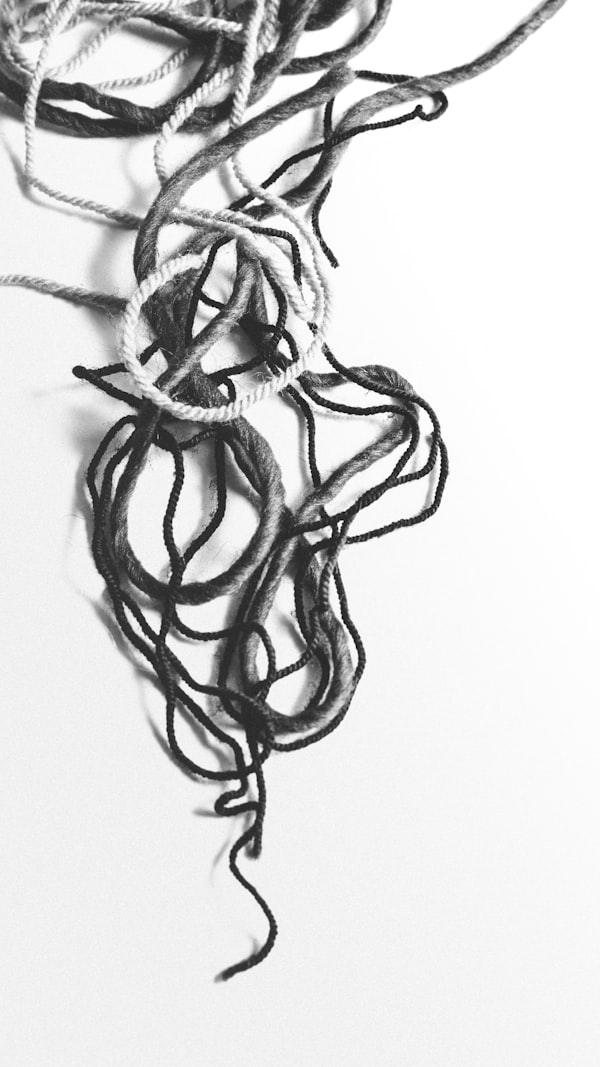No-Man’s Land: Lake Redstone
by Austin Segrest
...we had stopped believing in this tidy country... Along the lake for miles stretched nothing but private villas with their private gardens and private docks; but to us a lake was still a synonym for nature...To shut yourself up in your own house, fence yourself off from others and say, “This is mine,” one had to be a pig. In this place we felt very strongly that ownership is pitiless, that it works against those whom it excludes...Where we were from, no one cared whom the forest belonged to. It was for animals, hunters, and vagabonds.
—Czeslaw Milosz
The “tidy country” the Polish poet and his college buddies have largely walked and canoed to is German- speaking Switzerland in the 1930s.
When I propel myself on foot defenseless into the world, I, too, am outraged by the behaviors and presumptions of those “fenced off” purveyors of power, i.e. homeowners and drivers. It more than pains me, it offends me at a spiritual level, how little of the shore of that “synonym for nature” the Fox River I can access, for example. How guarded and threatened so many of those potentates tending their gardens above the river are by the likes of a hiker. Once, a “discussion” ensued, yelled down and back up the bluff, between a homeowner and me about whether or not there was even a trail. Committing that verboten act, taking a walk, I’ve been attacked by dogs, nearly mown down, taunted and screamed at more times than I can count. Twice, that I know of, I’ve had the cops called on me. When a city planner asked what’s the first thing to improve in Appleton, I said walking.
I was farm-sitting with my partner at Hilltop Farm near La Valle when I read this passage from Milosz’s memoir. I brought my long walks and virtuous outrage along. Below the hill the old farmhouse sat atop, with its flower and veggie beds and orchard and 25 acres of certified native restored prairie, was a lake. The shore and “redstone” bluffs of dammed lake Redstone were lined with private properties ranging from boatsheds to sprawling estates.
Our farm duties were light, watering and weeding. Watering became increasingly crucial in a dry early summer with a stultifying heat wave settling into a holding pattern, along with haze from Canadian wildfires. Only once we added a pitiful decimal of rain inches to the rain chart. Grass paled, flowers wilted, the sun moved us, reading and writing in our idle hours, from porch to pavilion and finally back inside.
Weather affects my mood. Perhaps it’s because, as a poet, I’m so sensitive to my environment. We’re all familiar with seasonal affective disorder in the upper Midwest, but that’s not what I mean. Warm does not always equal happy for me; in fact, it’s often the opposite. I’m ill at east, I almost take it personally, when the weather doesn’t “act right,” when the season feels unseasonable. And for me that almost always means too hot. It fills me with eco-dread.
I grew up in the south; snow and ice are beautifully exotic to me, but they also give me (spurious) eco-comfort. They’re like the dwindling world of imagination getting eaten up by The Nothing in The Neverending Story (a movie I was weaned on). Native Wisconsonites, with decades of harsh winters behind them, tend to roll their eyes at me.
Listen, I know, who am I to say how the weather should act? It’s not like I’m even scientific about it. In fact, I’m superstitious, superficial, not to mention solipsistic, as if I even slightly figure into the will of the weather. As if the weather has a will!
Most afternoons I walked around portions of Lake Redstone, limited to streets, of course, but keeping to the water as best I could. The Driftless hills, going around, were as unpredictable as the lake’s amoeba arms. The inclines were a welcome change, for the workout, from flat Appleton.
Up and down and around, the lake coming and going from view, I passed yard after yard and the occasional farm of environmentally indifferent conservatives (so I imagined), many with Germanic surnames posted next to that ubiquitous shibboleth the American flag: a buttoned-up clannishness I’ve come to know well in central Wisconsin.
I wasn’t walking so much as charging, layered with high-spf sunscreen, my trusty sun shirt, a wide- brimmed hiking hat with a neck flap. I wasn’t going “for a stroll,” or a “dip,” or “taking in the scenery.” The “natural” as well as the human environment felt tainted. I went roaring through, running the gauntlet, as it were, as if I could get through the worst of it and have it be over with. In the hottest part of the day, walking as far as I could, taking the hills at a merciless clip, shaking my head and grumbled at the sky, at the tank-like SUVs—a punishing walk was all that was deserved.
I couldn’t bear to linger or look for long at the signs of encroachment and degradation, the man caves, algae-clogged inlets, the cloudless haze. The amplified sun glancing off of pontoon bladders pierced my soul. A sprinkler’s frivolous flounce brought Theodore Roethke’s couplet from “The Lost Son” (1948) to mind: “Money money money / Water water water.”
The week before, I’d visited an old friend in Arkansas to give a poetry reading. A 9-to-5er with two kids, my friend, who tries to have an outdoor adventure every weekend, drove us to a lake to paddleboard. I followed her lead, enjoyed her joy, her graceful, uncomplicated love of water, even as I appreciated how compromised mine had become.
Water adventure was a no-brainer when I was growing up in Alabama. Time was, I’d dive off or into pretty much anything. There was a creek in a deep ravine some hundred meters behind our first house, and Dad would take my siblings and me down there as soon as we could walk. A neighbor friend and I called ourselves The Water Walkers we spent so much time in creeks. But now, in middle age, I dread the southern heat I am a product of. On that remote bend of Lake Rogers in northwest Arkansas with my friend, I poo- pooed the dam’s destruction, the obliviously wasteful and privileged boating parties. If I’d really looked, I think I could have seen that I even harbored a secret conviction that the creeks of my youth were more pristine, my summer swelter more seasonable. Yet another reason to shake my head.
Along with the stark climate-contrast with the deep south, an unexpected perk of living in the upper Midwest has been the relative lack of poisonous snakes. My Arkansas friend and I weren’t up on our boards four minutes (I’d fallen several times and was still wobbly) before a water moccasin came eeling across. Around a bend, a buzzard circled the pines. I commented how mostly we get bald eagles on the Fox. My friend said, twenty yards ahead, without looking back, you can’t escape death.
I think “the outdoors”—which my friend, like both my brother and sister and so many good people of the world seek out on the weekend—have been compromised for me since around the time my mother died in 2003. Since watching An Inconvenient Truth (2006). Since experiencing droughts in Atlanta and Missouri. A surprise trip to Hawaii circa 2007 mostly made me squirm. It’s as if my constant childhood worry over my mother’s heath has been writ large. Just as I declined to see her body in the ER, so I now turn away from all kinds of things I don’t want to see, or accept: most of the news and social media and science. Not to mention the stock market, bank accounts, the people I love most deeply, the future in general. I get the gist and don’t want to see any more, seeing it gets worse.
And mightn’t looking make it worse? As Elizabeth Bishop points out in her poem “At the Fishhouses,” through a metaphor’s backdoor, knowing and seeing are not the givens we “imagine” them to be. There is no neutral, “free,” or isolated knowledge. Knowledge isn’t merely about, free from, “above” the world—as the icy water below those Nova Scotian fishhouses appears to be. Knowledge is bound up in the world and comes at a cost. How could I not distrust, if not disown, my western, measuring, tidying means of knowing?
But this intellectual retreat treats knowledge as something you can take or leave: a privileged assumption most can’t afford. My sizing-up and trimming-down western male gaze is both ingrained and indispensable.
It seems to me a more reasonable, respectable, and responsible reaction to eco- and other anxieties is to want to know more. This is what my partner, an amazing researcher, does, who, not coincidentally, grew up working class. In the face of her mortal fears, she finds out everything she can.
Recently, my brother mentioned his tendency to compartmentalize his feelings about his problems. He said he wants to get back as quickly as possible to having “fun.” Living out west for this express purpose, fun for him is mountainbiking, climbing, camping, skiing. Hearing my friend in Arkansas invoke the word fun, Bishop’s devastating elegy “North Haven” came back to me, another of her poems looking at a body of water.
Years ago, you told me it was here
(in 1932?) you first “discovered girls”
and learned to sail, and learned to kiss.
You had “such fun,” you said, that classic summer. (“Fun”—it always seemed to leave you at a loss...)
Bishop’s speaking to the memory of her friend, poet Robert Lowell. Lowell’s manic pursuits of “fun” left him not only unable to explain himself but also, in the aftermath, literally “at a loss” of family, friends, health, integrity.
Redstone Lake, like any developed body of water, of course, is all about fun. The houses and sheds and docks are stables of adult toys—boats, skidoos, four- wheelers, fishing gear, pool tables, basement bars... Hasn’t our collective fun, mine and the “fenced-off” denizens of Lake Redstone’s, led to the loss I fear and struggle to accept and take responsibility for? If there’s a sense that my past fun is responsible for the damage and peril, I wonder if my fear is that letting go and fully enjoying “outdoor fun” now—tempting fate and, to quote Milosz again, “saying yes to the world”—would lead to even more, or total, loss.
What is it to compartmentalize the messy and inconvenient and painful problems in our lives but to effect a kind of psychic tidying? “To fence ourselves off”? I need to acknowledge the rage for order at the heart of my environmental neuroses. How far am I, really, from these conforming, clannish Germanics? I have to remember my urge to tidy physiques and relationships, as well as the round of seasons. I don’t do it with a fortress for a house or a tank for a car, but I, too, want to box off and be spared the unrelenting consciousness of doom.
Bishop was always fighting against the urge to tidy, trying to accept the mess. “Oh, but it is dirty!” her poem “Filling Station” (1965) famously begins. At the end of “The Bight” (1949), yet another water poem, she strives to accept the mess, how it rhymes with her desk.
The bight is littered with old correspondences. Click. Click. Goes the dredge,
and brings up a dripping jawful of marl.
All the untidy activity continues, awful but cheerful.
Untidy. There’s always untidiness in our best, most memorable art.
Despite our anxieties and neurotic attempts at control, the sacred, the ideal, the pristine gets encroached upon, exploited, parceled up, developed, polluted. Our privilege, our own encroachment, shows us in an increasingly unflattering light. Our parents become people. The babysitter turns out to have been a molester. Revisiting the old stomping grounds a decade later, Dad and my sister get a gun pulled on them for walking the creek. Dad says, you can’t own a creek. Standing the ground of a new mansion plopped in the middle of our old forest, guy pumps his shotgun, oh can’t I?




